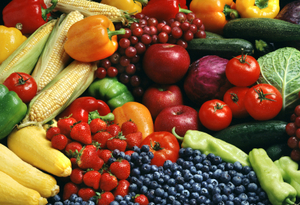The role of chronic inflammation in cancer was first presented way back in 1863, by Rudolf Virchow. He observed leukocytes or white blood cells present in cancer tissue. He suggested that an inflammatory environment promotes the initiation and the driving of carcinogenesis. It is now well accepted that chronic inflammation acts on tumour promotion through a complex communication system of mediators such as NFkappaB, COX and LOX that increase cell proliferation, prevent apoptosis or natural cellular death, enhance angiogenesis or blood supply to the tumour, turn off the DNA repair mechanisms and accelerate metastasis.
Its a two way road in that inflammation drives cellular growth and tumour progression but cancer can also promote inflammation. The immune system will respond to the mutated cells as a foreign invader and launch an immune attack, however the cancer cells are clever at avoiding detection so the inflammatory response becomes chronic.
Chronic inflammation also has a constant companion Free radical ( which is a detabilized molecule missing an electron and spinning out of control trying to find its missing mate) this is oxidative stress resulting in DNA damage. There are many cell damaging agents such as radiation, industrial pollutants, heavy metal accumulation, tobacco smoke, trans fats, high sugar diet, over-exercising, stress etc. All of these triggers of inflammation require an abundance of antioxidants to prevent cellular damage.
An important factor then for slowing down cancer development and tumour progression is to control inflammation and keep antioxidant stores full. Diet has a huge influence on inflammatory gene expression. A high saturated and high omega 6: 3 ratio diet, fried foods, high sugar and glycemic load consumption and food allergies will trigger the inflammatory response whereas a diet high in alkaline, antioxidant and anti-inflammatory vegetables and fruits, herbs and spices such as turmeric (curcurmin is an inhibitor of NF-kappaB) and ginger and green tea will dampen the inflammatory response.
See our Better Balance Anti-inflammatory Food Guide for further guidance in dietary reduction of chronic inflammation.
Its a two way road in that inflammation drives cellular growth and tumour progression but cancer can also promote inflammation. The immune system will respond to the mutated cells as a foreign invader and launch an immune attack, however the cancer cells are clever at avoiding detection so the inflammatory response becomes chronic.
Chronic inflammation also has a constant companion Free radical ( which is a detabilized molecule missing an electron and spinning out of control trying to find its missing mate) this is oxidative stress resulting in DNA damage. There are many cell damaging agents such as radiation, industrial pollutants, heavy metal accumulation, tobacco smoke, trans fats, high sugar diet, over-exercising, stress etc. All of these triggers of inflammation require an abundance of antioxidants to prevent cellular damage.
An important factor then for slowing down cancer development and tumour progression is to control inflammation and keep antioxidant stores full. Diet has a huge influence on inflammatory gene expression. A high saturated and high omega 6: 3 ratio diet, fried foods, high sugar and glycemic load consumption and food allergies will trigger the inflammatory response whereas a diet high in alkaline, antioxidant and anti-inflammatory vegetables and fruits, herbs and spices such as turmeric (curcurmin is an inhibitor of NF-kappaB) and ginger and green tea will dampen the inflammatory response.
See our Better Balance Anti-inflammatory Food Guide for further guidance in dietary reduction of chronic inflammation.
